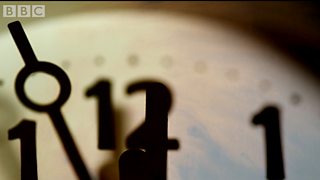
22/10/2014
A spiritual comment and prayer to begin the day with Shaunaka Rishi, Director of the Oxford Centre of Hindu Studies.
Last on
Wednesday 22nd October 2014
Good morning. When listening to Farming Today I once heard a report which explained that without using pesticides up to twenty per cent of a crop can be lost, which seems unfortunate.
On the other hand people are concerned about the bee population, saying that without bees pollinating crops we could lose an even greater percentage. Others are concerned about animals, birds, trees, plants, and herbs - whose very survival can be compromised by human activity.
An old Indian story tells of the bag of rice left in the market place. A bird came and landed near the bag. It took the few grains it needed, and flew away. A mouse found the bag and scratched a small hole in its side, and ate its fill. A man arrived, and not finding the owner, took the whole bag.
For the bird and the mouse it was just a bag of grain, available to all. For the man ownership was important. If he couldn’t identify an owner then he claimed ownership himself, and took it all. His ownership benefited only himself, and deprived others. It was a thoughtless and extreme act, which we’d usually identify as greed. Maximising profit can also be seen as extreme, if it deprived others.
The Upanishads are a collection of philosophical works, ancient in origin, and sacred to Hindus. One of the books, the Isopanshad, the cream of the Upanishads, opens with the following verse:
“Everything animate and inanimate within the universe is controlled and owned by the Lord. One should therefore accept only those things necessary for himself, which are set aside as his quota, and one should not accept other things, knowing well to whom they belong.” Hare Krishna. 287
Broadcast
- Wed 22 Oct 2014 05:43���˿��� Radio 4

